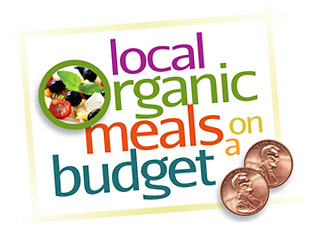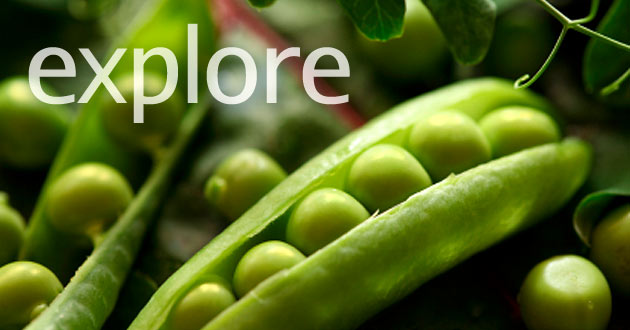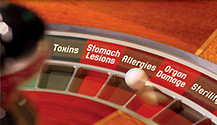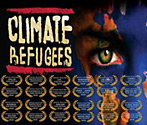Must-see movies & videos, eye-opening links
There's so much great information out there! These selected movies and videos will help you in making food choices and educate you about your health, the health of the planet, and current issues. Enjoy!
|
|
|
Movies
Many of these powerful films are available on Netflix. If you live in Santa Fe, some of these titles are available to groups for viewing from the Santa Fe Farmers Market Institute.
Bag It
Bag It moves from charming to alarming to downright terrifying as it reveals a powerful lobby with deep pockets dedicated to promoting the use of plastics and other chemicals that blatantly threatens the health of future generations.
Americans use 60,000 plastic bags every five minutes. But where do bags and other plastics go when we’re done with them? Bag It follows average guy Jeb Berrier as he navigates our plastic world and takes a closer look at our cultural love affair with plastics. Discover the unknown consequences of rampant plastic use—from degradation to the risk of cancer and other human diseases. Bag It makes it clear that it is time to question how we produce and consume “disposable” objects. Running Time: 78 minutes (2010)
Beyond Organic
BEYOND ORGANIC tells the story of this amazing farm and its long battle to survive in the face of rapid suburban development. It explores the efforts of Ableman and his staff to diversify the farm, open it to educational tours for thousands of people -- especially schoolchildren -- and defend it against angry neighbors, hostile public officials and developers eager to re-zone the land for condominiums. It draws a sharp contrast between community supported agriculture and conventional chemical farming, and it calls on organic farmers to remember basic principles, including fair labor practices, as their farms grow in size and power.
BEYOND ORGANIC is a dramatic story with a happy ending. Other neighbors -- and eventually the entire Santa Barbara community -- rallied around Fairview Gardens and raised $800,000 to preserve it as a land trust, and as a source of inspiration, for future generations. Running Time: 33 minutes (2000)
Billion Dollar Crop
This surprising video explains the environmental interest in the non-drug variety of hemp as a versatile industrial fiber, and documents the history of its prohibition. Backed by years of worldwide research, BILLION DOLLAR CROP exposes the political and industrial manipulations, which outlawed one of the most valued plants in history. Hemp once provided the paper on which US banknotes were printed, the cloth for the original Levi jeans, as well as the sails and rigging of ships. During World War II it was of such strategic importance that the US Government encouraged farmers to convert to hemp cultivation.
BILLION DOLLAR CROP shows how the recently developed, non-drug variety of hemp is being researched and cultivated internationally because of the plant's versatile qualities and environmental friendliness. This program takes the audience on a world tour from Australia to the United Kingdom, and from The Netherlands to France and the US. It illustrates how hemp is being cultivated as an industrial fiber for use as an alternative to wood for paper production, to cotton for clothes, and to plywood for construction. We all benefit, especially our forests and topsoil. Running Time: 55 minutes (1996)
Broken Limbs
Wenatchee, Washington is the "Apple Capital of the World." This pastoral Valley in the heart of the Pacific Northwest prospered for nearly a century as home to the famed Washington apple. But the good times have vanished. Apple orchardists by the thousands are going out of business and thousands more await the dreaded letter from the bank announcing the end of their livelihoods and a uniquely American way of life. After his own father receives just such a letter, filmmaker Guy Evans sets out on a journey of discovery to try to find out what went wrong here in this natural garden of Eden.
Along the way he witnesses small farmers forced off their land as they struggle to compete against the Goliaths that populate today’s global economy. The future looks grim for the Apple Capital until Evans happens upon an entirely new breed of farmer, practitioners of a new model for farming called sustainable agriculture. They have come to be known as the New American Farmers and they are finding success by going against the grain of conventional agriculture. The ideas that Evans uncovers define a path of renewal that could save not only his father, but farmers across America.
Broken Limbs explores these hopeful stirrings within agriculture, and outlines ways in which any individual can play a role in saving America’s farmers. Told from a hometown perspective, the film presents the stories of farmers attempting to create this new model for agriculture and emerging, more sustainable solutions to the crises of recent years – solutions applicable not just to apples and not just to farming, but to nearly any sector of the American economy troubled by the effects of consolidation and globalization. Running Time: 57 minutes (2003)
Buyer Be Fair
Under the auspices of the WTO, globalization of world trade seems like a juggernaut that will not be stopped. But is there a way to make trade FAIR? How can retailers and consumers use their purchasing power and market choice to make the world better for people and the environment? What is the promise of product certification and labeling?
BUYER BE FAIR looks at two major trade goods – timber and coffee – to find out how certification works and whether it helps the world's poor, and their lands. Can the lessons from certification of timber, by the Forest Stewardship Council, and coffee, by Fair Trade, be applied to other products?
BUYER BE FAIR takes viewers to Mexico, the Netherlands, the UK, Sweden, the USA and Canada, where compelling stories and characters raise and answer these questions in a powerful documentary that explores new ways to make globalization work for all of us. Running Time: 57 minutes (2006)
Carbon Nation
How do SOLUTIONS to climate change also address social, economic and national security issues? Meet the individuals behind the world’s largest wind farm, a refrigerator recycling plant and a “green” project for low-income neighborhoods – job creators in the name of alternative energy! Also, notables such as Richard Branson, former CIA Director R. James Woolsey, Earth Day founder Denis Hayes and others showcase why it’s good business to be part of the new, low carbon economy. Running Time: 85 Minutes (2011)
Climate Refugees
Climate Refugees is an epic film that documents the urgent plight of millions of people currently being forced to flee their homelands due to changes in the environment and extreme weather events. It highlights the human face of climate change through personal stories from places such as Tuvalu, Bangladesh and New Orleans. The impacts of hurricanes, floods, desertification, sea level rise, droughts and fires are causing mass global migration and border conflicts, all resulting from too little or too much water across the planet. The Pentagon now considers climate change a national security risk and the term climate wars is being talked about in Washington D.C. What can we do to improve the situation and protect future generations? Running Time: 86 minutes (2010)
Cultivating Change
CULTIVATING CHANGE is an invigorating tour of garden projects in both the United States and Canada. It tells the story of how growing and cooking food can be a remarkable avenue to social change. In San Francisco, for instance, Catherine Sneed's Garden Project has transformed the lives of members of poor inner city communities and created bonds between community members and the police force. In Canada, organizations like Farm Folk, City Folk and First Harvest have helped put meaning back in the lives of people living in cities by reconnecting them to food and the land.
Through gardening, organic food production, and cooking, people learn to nurture life and see their hard work turn into something positive. They learn respect for food, for life, and most importantly for themselves. CULTIVATING CHANGE, and its companion program ECONOMICS, from the second installment of REINVENTING THE WORLD, introduce us to innovative people and their ideas for practical solutions to the big problems affecting all of us. Hosted by Canadian author, gardener, and activist Des Kennedy, both programs offer clear alternatives to the questions we are all facing at the beginning of this new millennium. Running Time: 50 minutes (2001)
Dive!
Inspired by a curiosity about the American tendency to send billions of pounds of food into the landfill each year, the award-winning documentary DIVE! follows young Los Angelenos as they dumpster dive behind some of the largest name grocery stores in the country. They salvage and consume thousands of dollars worth of good, often gourmet food that would otherwise be thrown away. DIVE! highlights the terrible irony of immense food waste and hunger existing in the same place. This film is at once entertainment, guerilla journalism, and a call to action! Running Time: 55 minutes (2009)
Edible City
Edible City takes viewers on a journey through the local urban farming movement, a trend that began in 2008 by following farmers, cooks, and activists. The conversion of empty lots into organic gardens is a natural and practical response not only to Big Ag, but also to urban problems like food scarcity and obesity. “We have been eating oil for 40 years.” Chemicals, fertilizers and pesticides have given us more food, but at what price?
Food issues ranging from obesity to food costs and shortages are escalating in the U.S. Edible City tells the stories of the pioneers who are digging their hands into the dirt, working to transform their communities and do something truly revolutionary: grow local Good Food Systems that are socially just, environmentally sound, economically viable and resilient to climate change and market collapse. It highlights the success of a San Francisco Bay Area neighborhood that grows organic food on city plots to benefit local inhabitants. An inspiring, practical model for a healthy, local food system that is environmentally sound and cost effective, Edible City is a must for fresh food lovers. Running Time: 70 minutes
The End of the Line
Imagine a world without fish. This film reveals the inconvenient truths about over fishing the world’s oceans. This is the first documentary to illuminate the true extent of the crisis facing our aquatic ecosystems. Taking us from the cod-depleted shores of the north Atlantic to the fish markets of Tokyo, THE END OF THE LINE sounds a powerful wakeup call: if we continue fishing as we are, we will see the end of many fish species before 2050. Running Time: 82 minutes (2009)
Farmageddon
Americans’ right to choose fresh, healthy food is under attack. FARMAGEDDON tells the story of how small family farms are being harmed by regulations created for industrial scale agriculture and threatened using extreme enforcement measures. FARMAGEDDON highlights the urgency of food freedom, encouraging consumers and farmers alike to defend their rights to eat and grow fresh, unprocessed foods. Running Time: 90 minutes (2011)
Flow: For the Love of Water
Irena Salina's award-winning documentary investigation into what experts label the most important political and environmental issue of the 21st Century – The World Water Crisis. Salina builds a case against the growing privatization of the world's dwindling fresh water supply with an unflinching focus on politics, pollution, human rights, and the emergence of a domineering world water cartel.Interviews with scientists and activists intelligently reveal the rapidly building crisis, at both the global and human scale, and the film introduces many of the governmental and corporate culprits behind the water grab, while begging the question "CAN ANYONE REALLY OWN WATER?" Beyond identifying the problem, FLOW also gives viewers a look at the people and institutions providing practical solutions to the water crisis and those developing new technologies, which are fast becoming blueprints for a successful global and economic turnaround. Running Time: 93 minutes (2008)
Food, Inc.
Our nation's food supply is now controlled by a handful of corporations that often put profit ahead of consumer health, the livelihood of the American farmer, the safety of workers and our own environment. Food, Inc. reveals surprising—and often shocking truths—about what we eat, how it's produced, who we have become as a nation and where we are going from here. Running time: 93 minutes. (2008)
Fragile Harvest
How safe is the future of the world's food? FRAGILE HARVEST explores a growing crisis in world agriculture. Plant breeding has created today's crops, high yielding but vulnerable to disease and insects. To keep crops healthy, breeders tap all the genetic diversity of the world's food plants. But that rich resource is quickly being wiped out.
Filmed in Ethiopia, Peru, Turkey, and North America, FRAGILE HARVEST finds "development" that has driven farmers from the land, increased dependence on agrichemicals, and eliminated indigenous adapted varieties of food crops. This has dramatically reduced the world's genetic pool upon which all our food depends.
The new genetic engineering tools of plant breeding that could promise solutions to world hunger are increasingly in the hands of multinational chemical companies that have taken over seed companies and are breeding and marketing seeds to suit their agrichemical interests.
The very future of our food depends on how we are able to conserve the world's genetic resources and re-direct the goals of today's plant breeding. Running Time: 49 minutes (1987)
A shorter classroom version of FRAGILE HARVEST has been reedited as SEEDS
Fresh
FRESH celebrates the farmers, thinkers and business people across America who are re-inventing our food system. The rapid transformation of our agriculture into an industrial model has had consequences: food contamination, environmental pollution, depletion of natural resources, and morbid obesity. Forging healthier, sustainable alternatives, these visionaries offer a practical vision for our food and our planet. Running time: 72 minutes. (2009)
The Future of Food
There's a revolution going on in the farm fields and on the dinner tables of America. A revolution that's being fought behind closed doors of corporate boardrooms and government agencies over the use of genetically modified organisms in our food. The filmmaker leads an in-depth investigation into the disturbing truth behind the unlabeled GMO products that have quietly filled grocery store shelves over the past decade.
From the test tube, to the farm field, to the supermarket, the film follows the personal stories of the farmers in the U.S. and Canada who have been sued by large multi-national corporations for continuing the time-honored tradition of saving seeds; of the scientists in the U.S. and Europe who have been censored for raising serious public and environmental health concerns; and finally, of the consumers, who are beginning to question why this has escaped the attention of both the media and the Federal agencies in charge of keeping our food safe. Running Time: 88 minutes (2005)
Garbage! The Revolution Starts at Home
Garbage! The Revolution Starts at Home is a feature documentary about how the family household has become one of the most ferocious environmental predators of our time.
Concerned for the future of his new baby boy Sebastian, writer and director Andrew Nisker takes an average urban family, the McDonalds, and asks them to keep every scrap of garbage that they create for three months. He then takes them on a journey to find out where it all goes and what it's doing to the world.
From organic waste to the stuff they flush down the potty, the plastic bags they use to the water they drink out of bottles, the air pollution they create when transporting the kids around, to using lights at Christmas, the McDonalds discover that for every action there is a reaction that affects them and the entire planet.
Everyday life under a microscope has never been so revealing. By the end of this trashy odyssey, you are truly inspired to revolutionize your lifestyle for the sake of future generations. Running Time: 76 minutes (2007)
The Garden
The fourteen-acre community garden at 41st and Alameda in South Central Los Angeles is the largest of its kind in the United States. Started as a form of healing after the devastating L.A. riots in 1992, the South Central Farmers have since created a miracle in one of the country’s most blighted neighborhoods. Growing their own food. Feeding their families. Creating a community.
But now, bulldozers are poised to level their 14-acre oasis.
The Garden follows the plight of the farmers, from the tilled soil of this urban farm to the polished marble of City Hall. Mostly immigrants from Latin America, from countries where they feared for their lives if they were to speak out, we watch them organize, fight back, and demand answers:
Why was the land sold to a wealthy developer for millions less than fair-market value? Why was the transaction done in a closed-door session of the LA City Council? Why has it never been made public?
And the powers-that-be have the same response: “The garden is wonderful, but there is nothing more we can do.”
If everyone told you nothing more could be done, would you give up?
Running Time: 95 minutes (2009)
Genetic Roulette
Are genetically modified organisms (GMOs) really safe? Should food labels be required to list GMOs? This expose from Jeffrey Smith of the Institute for Responsible Technology may change the way your family wants to eat. Monsanto’s strong-arm tactics, the FDA’s fraudulent policies, and how the USDA ignores a growing health emergency are also laid bare. This sometimes shocking film may change your diet, help you protect your family, and accelerate the consumer tipping point against genetically modified organisms (GMOs). Don’t miss this film! Running Time: 85 minutes.
Going Green: How to Reduce Your Garbage
GOING GREEN provides a step-by-step guide to reducing the "unfriendly" impact of your household on the environment. Join the Tomachich family who show us practical ways to reduce waste and who set an admirable example - they have only one and a half bags of garbage per year!
Learn easy methods of sorting recyclables, alternatives to common household hazardous chemicals, the benefits of composting and of buying in bulk.
This excellent video workshop helps people translate their environmental concerns into daily actions. The message: "You can do a lot when you take it a step at a time." Running Time: 22 minutes (1992)
The Light Bulb Conspiracy
Once upon a time, products were built to last. Not today. The Light Bulb Conspiracy traces the story of planned obsolescence — the deliberate shortening of product life spans to guarantee consumer demand — from its start in the 1920s with a secret cartel that limited the life of light bulbs to current stories of inkjet printers and iPods. Moving through France, Germany, Spain and the US, this film shows a business practice that is the basis of modern growth-oriented economies. It also shows the result: discarded electronics piling up in huge third world electronic waste sites, ruining land and water where the poorest of the poor live – all in the name of “recycling” from wealthy countries. Offering hope at the end, The Light Bulb Conspiracy depicts the growing spirit of resistance among ordinary consumers, asking: is planned obsolescence itself becoming obsolete? Running Time: 75 minutes
My Father’s Garden
My Father's Garden is an engrossing documentary about the use and misuse of technology on the American farm. The main story concerns Fred Kirschenmann, organic farmer and leader in the sustainable agriculture movement. Fred's message is deeply serious. We are rapidly losing the natural resources and human wisdom that are necessary to grow food...but there is a way out of this dilemma.
Intertwined with Fred's story is the personal narrative of the filmmaker, told through the use of home movies from the 1950's. Her father was a successful and innovative farmer at the dawn of the chemical era in agriculture. His use of the new miracle sprays enabled him to utterly transform their Florida farm into a man-made paradise. My Father's Garden is at its essence a story of hope. By examining the central philosophies that guide our relationship with nature, the film shows how each of us can bring health and beauty back into the Garden, our planet. Running Time: 56 minutes (2006)
The Real Dirt on Farmer John
The life of John Peterson, a farmer, artist and progressive thinker, as seen through family home movies, photographs, film and video. In the late 1960s, John turned his traditional family farm into an experiment of art and agriculture, making it a haven for hippies, radicals and artists. In the late 1980s his community had scapegoated him as a devil worshipper/drug dealer and the farm debt crisis of the time brings about the tragic collapse of his farm. Defying all odds, John eventually farms again and creates a revolutionary extended village where people and art thrive alongside agriculture. Running Time: 82 minutes (2006)
Ripe for Change
This fascinating documentary explores the intersection of food and politics in California over the last 30 years. It illuminates the complex forces struggling for control of the future of California's agriculture, and provides provocative commentary by a wide array of eloquent farmers, prominent chefs, and noted authors and scientists. The film examines a host of thorny questions: What are the trade-offs between the ability to produce large quantities of food versus the health of workers, consumers, and the planet? What are the hidden costs of "inexpensive" food? How do we create sustainable agricultural practices?
Through the "window" of food and agriculture, Ripe for Change reveals two parallel yet contrasting views of our world. One holds that large-scale agriculture, genetic engineering, and technology promise a hunger-less future. The other calls for a more organic, sustainable, and locally focused style of farming that reclaims the aesthetic and nurturing qualities of food and considers the impact of agriculture on the environment, on communities, and on workers. Running Time: 56 minutes (2005)
Rooted Lands
The rural villages of Mora and San Miguel in New Mexico stand up and speak out against one of the world’s most powerful and dirty industries. Rooted Lands explores the citizen grassroots movement against gas and oil development tactics that include fracking and dramatic production of waste products. As mineral leases are bought by oil and gas speculators in rural counties like Mora and San Miguel, NM citizens are learning they must stand up to protect land and culture from suffering the Four Corners fate: “Mora County…is still pristine. They’re fighting to keep it that way. We’ve already lost that here [in the Four Corners]. The wellheads are leaking. The pits have overflowed…”
Rooted Lands shows how the residents of mostly Hispanic villages (among the poorest communities in the U.S.) are speaking out against the powerful, dirty industry that threatens NM’s land and water. Running time: 64 minutes.
Silence of the Bees
In the winter of 2006, a strange phenomenon fell upon honeybee hives across the country. Without a trace, millions of bees vanished from their hives. A precious pollinator of fruits and vegetables, the disappearing bees left billions of dollars of crops at risk and threatened our food supply. The epidemic set researchers scrambling to discover why honeybees were dying in record numbers — and to stop the epidemic in its tracks before it spread further.
Silence of the Bees is the first in-depth look at the search to uncover what is killing the honeybee. The filmmakers of Bees take viewers around the world to the sites of fallen hives, to high-tech labs, where scientists race to uncover clues, and even deep inside honeybee colonies. Silence of the Bees is the story of a riveting, ongoing investigation to save honeybees from dying out.
The film goes beyond the unsolved mystery to tell the story of the honeybee itself, its invaluable impact on our diets and takes a look at what’s at stake if honeybees disappear. Silence of the Bees explores the complex world of the honeybee in crisis and instills in viewers a sense of urgency to learn ways to help these extraordinary animals. Running Time: 51 minutes (2007)
Who Killed the Electric Car?
The year is 1990. California is in a pollution crisis. Smog threatens public health. Desperate for a solution, the California Air Resources Board (CARB) targets the source of its problem: auto exhaust. Inspired by a recent announcement from General Motors about an electric vehicle prototype, the Zero Emissions Mandate (ZEV) is born. It required 2% of new vehicles sold in California to be emission-free by 1998, 10% by 2003. It is the most radical smog-fighting mandate since the catalytic converter. With a jump on the competition thanks to it speed-record-breaking electric concept car, GM launches its EV1 electric vehicle in 1996.
It was a revolutionary modern car, requiring no gas, no oil changes, no mufflers, and rare brake maintenance (a billion-dollar industry unto itself). A typical maintenance checkup for the EV1 consisted of replenishing the windshield washer fluid and a tire rotation. But the fanfare surrounding the EV1's launch disappeared and the cars followed. Was it lack of consumer demand as carmakers claimed, or were other persuasive forces at work? Fast forward to 6 years later--the fleet is gone. EV charging stations dot the California landscape like tombstones, collecting dust and spider webs. How could this happen? Did anyone bother to examine the evidence? Yes, in fact, someone did. And it was murder. Running Time: 90 minutes (2006)
Online videos
Birke Baehr: "What's Wrong With Our Food System"
The Scoop: This 11-year old covers lots of important territory in this short TED talk. Favorite line: "We can pay the farmer or we can pay the hospital." An inspiration for kids and adults alike. www.birkeonthefarm.com
Robyn O'Brien: A mom's take on food allergies & GMOs
The Scoop: When her daughter's faced swelled up at breakfast one morning, this mother decided to find out why kids are more allergic to food now than in the past. Her investigation leads her to some shocking and sobering conclusions. www.robynobrien.com
Links for more information
Grow your own food
Home Grown New Mexico's website: www.homegrownnewmexico.org
Free seeds helping Americans get by, live healthier: cnn.com
Free greens: Edible weeds! www.naturallifemagazine.com
Grow Y'Own Ready Made Raised Beds and Covers
Why eat local & organic foods?
From the Mayo Clinic: www.mayoclinic.com
Learn the basics: wikipedia.org/wiki/Organic_food
The Truth About Organic Foods: www.redbookmag.com
The dirty dozen and clean 15 of produce: Pesticides and cancer risk www.pbs.org
Local and Organic Food and Farming: The Gold Standard: www.organicconsumers.org/articles/article_22627.cfm
Local vs. Organic Produce: Which is Better?: www.simpleorganic.net
Organic vs. Conventional Farming Practices: http://www.education.com
Shoppers Guide To Pesticides: http://www.foodnews.org/faq.php
Learn the basics about GMOs: www.responsibletechnology.org/gmo-basics
Look for food with the Non GMO Project label to avoid eating GMOs. Learn more at their website: www.nongmoproject.org
The TRUE cost of food
Getting Real About the High Price of Cheap Food: www.time.com
The True Cost of Food: www.chow.com
Organic food is cheaper than conventional food: http://current.com/news
Comparing Taxpayer Subsidies for Fresh Produce and Junk: www.uspirg.org
All about organic: www.organic.org
Pesticides, Pesticide Exposure & Your Health: www.panna.org/your-health/food
Buying organic on a budget
Shopping on a Budget for Organic Food www.organicauthority.com
How to Eat Organically on Modest Means www.wikihow.com
How to Make Buying Organic Affordable www.organicauthority.com
17 tips for buying organic food on the cheap www.bankrate.com
10 Farmers Market Shopping Tips www.localfoods.about.com
How to Save Money at a Farmers' Market www.wikihow.com
Quiz: Know How to Shop a Farmers' Market? www.wholeliving.com
Where to buy local & organic
Northern New Mexico Farmers Markets
Community Supported Agriculture (CSAs)
Chains and co-ops selling local and organic foods
Click to see what's available right now at the Santa Fe Farmers Market
Send us your favorites
Click to email suggestions to include on this page








